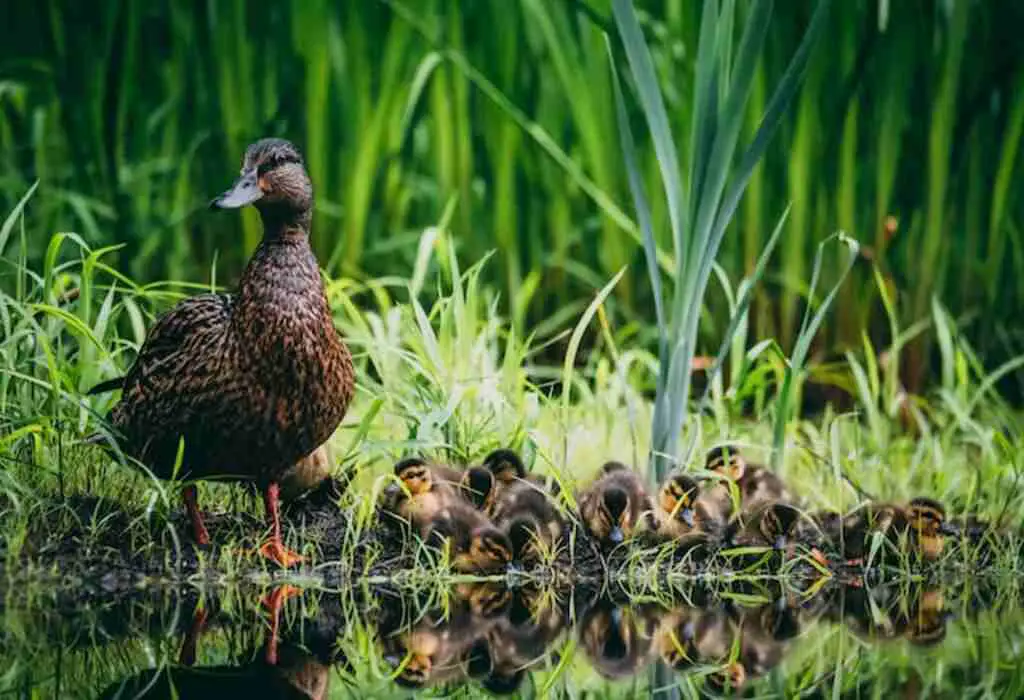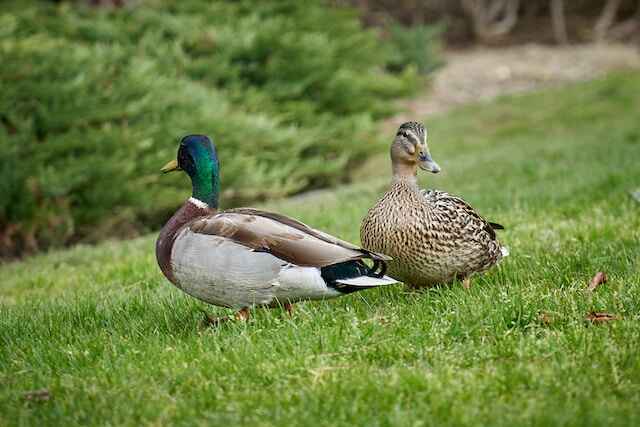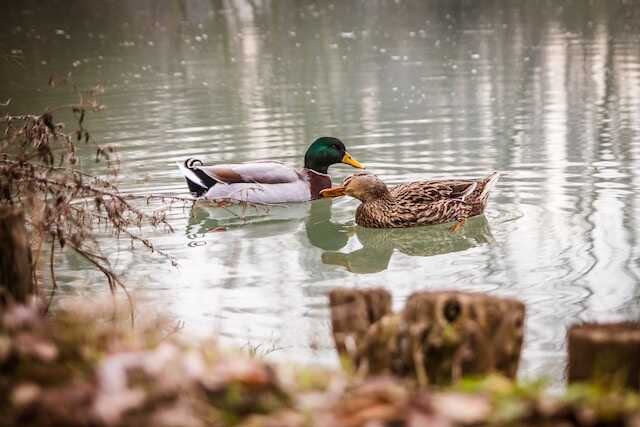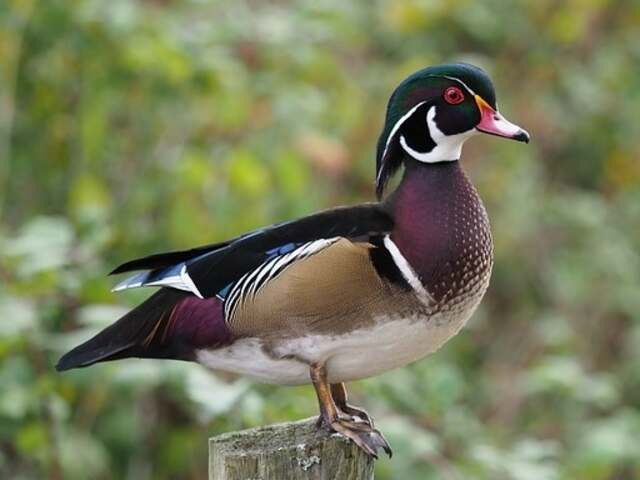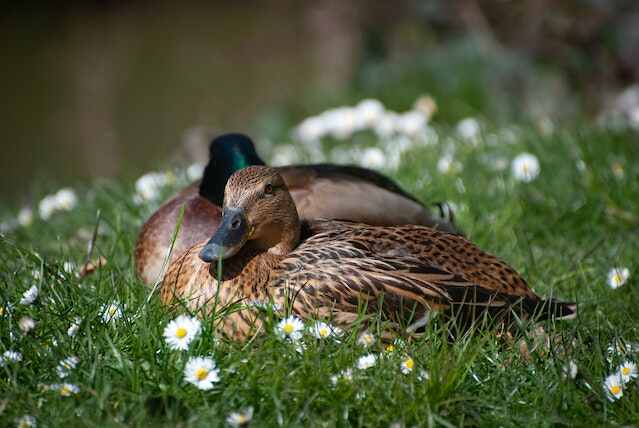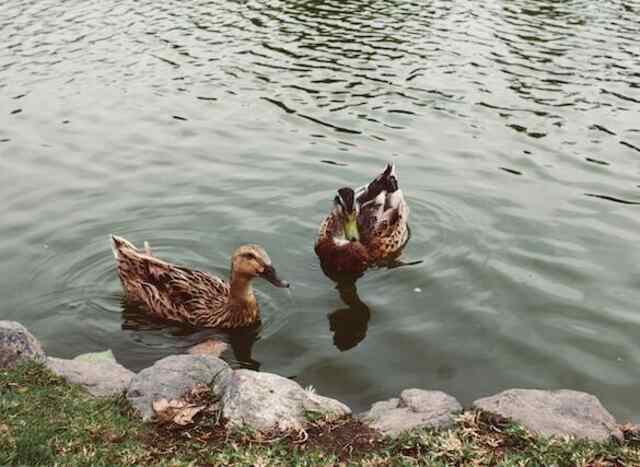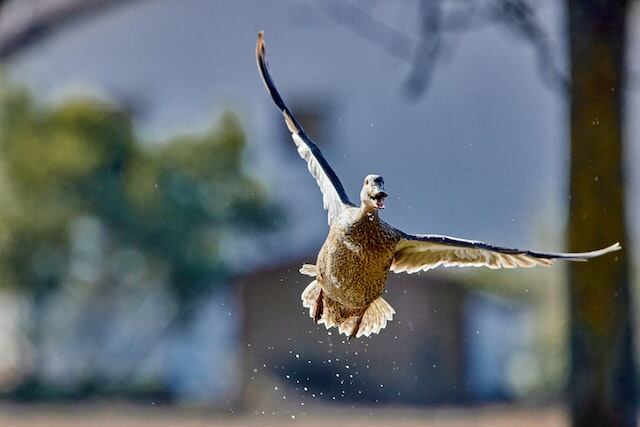Welcome to our exploration of the dietary habits of ducks! In this guide, we dive into the intriguing question: “Do Ducks Eat Duckweed?” Join us as we uncover the role of duckweed in the diets of these aquatic birds and shed light on their fascinating feeding behaviors.
Table of Contents
- 1 Brief Overview of Ducks and Their Diet
- 2 Explanation of Duckweed and Its Characteristics
- 3 What is Duckweed?
- 4 Do Ducks Eat Duckweed?
- 5 Benefits of Duckweed in a Duck’s Diet
- 6 How to Feed Ducks with Duckweeds
- 7 Conclusion
- 8 FAQs: Do Ducks Eat Duckweed?
- 8.1 Do ducks eat duckweed?
- 8.2 Is duckweed a primary part of a duck’s diet?
- 8.3 How does duckweed benefit ducks?
- 8.4 Can duckweed be harmful to ducks?
- 8.5 Are all duck species attracted to duckweed?
- 8.6 Can ducks survive without duckweed?
- 8.7 Where can duckweed be found?
- 8.8 Is it possible to cultivate duckweed for ducks?
- 8.9 Can humans consume duckweed?
- 8.10 Does duckweed have any ecological benefits?
- 9 Author
Brief Overview of Ducks and Their Diet
Ducks are omnivorous, consuming both plant matter and animals as part of their diet. Their diet varies depending on the season, location, and availability of food sources.
During the breeding season, ducks require more protein-rich foods to support egg production. In contrast, during the non-breeding season, they consume more carbohydrate-rich foods for energy.
Most ducks feed by dabbling or plunging their heads underwater to search for food along the bottom of ponds or streams. They also graze on land-based vegetation such as grasses, seeds, and agricultural crops like rice.
Explanation of Duckweed and Its Characteristics
Duckweed refers to any tiny floating green plant species belonging to the family Lemnaceae. It has no stems or leaves, but instead consists of one or two flat oval-shaped structures called fronds that float on top of water bodies like ponds or slow-moving streams.
What makes duckweed unique is its small size (less than 5 mm in diameter) which allows it to grow rapidly in nutrient-rich waters such as those found near agricultural fields or livestock operations where it can cause problems by blocking sunlight needed by other photosynthetic organisms.
Duckweed is an excellent source of protein, vitamins, minerals, and amino acids which make it a valuable food source for many animals including ducks. Its nutritional content can vary depending on the species and the water conditions in which it grows.
What is Duckweed?
Duckweed is a floating aquatic plant that belongs to the family Lemnaceae. It consists of small, free-floating plants that grow in still or slow-moving water bodies such as ponds, lakes, and streams.
These plants are simple in structure and have no true roots. Instead, they grow fine hair-like structures called rootlets that absorb nutrients from the surrounding water.
Definition of Duckweed
Duckweed is a tiny flowering plant that floats on the surface of still or slow-moving water bodies. It is often used as a food source for fish and other aquatic animals due to its high nutritional content and ability to reproduce rapidly.
Characteristics of Duckweed
Duckweeds are simple in structure but have unique characteristics that make them distinct from other aquatic plants. They consist of small, oval-shaped leaves that vary in size depending on the species.
Most duckweeds range in size from 1mm to 10mm long and can spread up to several feet across the surface of a water body. Another unique characteristic of duckweeds is their growth pattern.
These plants reproduce rapidly through budding, which means one plant can divide into two or more identical plants within hours. This allows them to quickly cover large areas of open water surfaces.
Types of Duckweed
There are several types of duckweeds found worldwide with varying sizes and characteristics. The most common types include Lemna minor (common duckweed), Spirodela polyrhiza (giant duckweed), Wolffia globosa (Asian watermeal), Lemna trisulca (ivy-leaved duckweed), and Landoltia punctata (dotted duckweed).
Each type has unique characteristics such as leaf shape, size, coloration, growth rate, reproductive structures, nutrient content, habitat preference, and ecological roles.
Understanding the different types of duckweed can help in identifying them, determining their nutritional value, and selecting those suitable for feeding ducks.
Do Ducks Eat Duckweed?
The Importance of Duckweed in a Duck’s Diet
Duckweed, a small aquatic plant that floats on the surface of water, is an important component of a duck’s diet.
It is packed with nutrients and provides many benefits that are essential for the overall health and well-being of these birds. In fact, studies have shown that duckweed can comprise up to 70% of a duck’s diet in the wild.
One reason why duckweed is so important for ducks is its high protein content. It contains about 40-50% protein, which is crucial for maintaining muscle mass and growth.
Additionally, duckweed is rich in other nutrients such as vitamins A and C, calcium, iron, and phosphorus. These nutrients help to support the immune system and promote healthy bone growth in ducks.
Research Studies on Ducks and Their Consumption of Duckweed
Several research studies have been conducted to investigate the relationship between ducks and their consumption of duckweed.
One such study published in The Journal of Wildlife Management found that mallards consumed more than 80% of their diet as duckweed during certain times of the year.
Another study published in The Auk: Ornithological Advances found that American black ducks actively sought out areas where large quantities of duckweed were present.
These studies demonstrate that not only do ducks eat duckweed, but they actively seek it out as an important food source. Wild ducks are known to consume significant amounts of this plant throughout their lives.
Factors That Affect a Duck’s Consumption of Duckweed
While most species of ducks readily consume duckweed when available to them, there are several factors that can affect their consumption patterns.
One factor is environmental conditions – if there isn’t enough water or sunlight available for the growth and proliferation of these plants, then ducks may not have access to them.
Another factor is competition – if other animals are consuming a large portion of the available duckweed, then ducks may not be able to obtain as much.
Furthermore, some studies have suggested that ducks may prefer certain types of duckweed over others. For example, one study found that mallards preferred a type of duckweed known as Lemna minor over other varieties.
This suggests that factors such as taste and texture may also influence a duck’s consumption preferences.
Overall, while there are some factors that can affect a duck’s ability to consume duckweed, it remains an important component of their diet and provides many essential nutrients and benefits.
Benefits of Duckweed in a Duck’s Diet
Duckweed is an excellent source of nutrition for ducks and is considered a superfood among the aquatic plants. It is packed with protein, carbohydrates, vitamins, and minerals that are necessary for a duck’s growth and development.
The nutritional content of duckweed varies depending on the type and conditions it grows in. Additionally, duckweed has high levels of essential amino acids that are required for muscle building and tissue repair.
One of the significant benefits of duckweed in a duck’s diet is that it helps to maintain a healthy digestive system. Unlike other foods consumed by ducks, such as bread or crackers, duckweed is easily digestible due to its high protein content.
The plant also contains enzymes that assist in breaking down complex carbohydrates efficiently. In addition to its nutritional value, consuming duckweed has several positive effects on ducks’ overall health and wellbeing.
Studies have shown that ducks fed with a diet rich in duckweed have better feather quality than those fed with standard commercialized diets.
This improvement can be attributed to the plant’s high levels of beta-carotene, which gives feathers their vibrant color while also promoting healthy skin and eyesight.
Nutritional value of Duckweed for Ducks
Duckweeds are known to be one of the most nutritious plants available for consumption by animals like ducks. A 100-gram serving contains approximately four grams of protein, which makes up about 45% of its dry weight.
This makes it an excellent source not only for protein but also essential amino acids like lysine, methionine, cysteine amongst others.
Besides proteins and amino acids mentioned above, Duckweeds contain vitamins such as vitamin A (beta-carotene), B-complex vitamins (B1 – thiamin), vitamin C (ascorbic acid).
It also includes nutrients like Iron (Fe), Potassium (K), Calcium (Ca), and Phosphorus (P).
The wide range of nutrients found in Duckweeds makes it an ideal food source for ducks, ensuring they have a well-balanced and nutritious diet.
Role of Duckweed in Maintaining a Healthy Digestive System for Ducks
Duckweeds contain high levels of enzymes that help to break down complex carbohydrates easily, making them accessible to digest.
One enzyme specifically found in duckweed, cellulase, is known to break down cellulose into simple sugars like glucose.
This ability makes the digestion process more comfortable, resulting in better nutrient absorption by the ducks’ digestive system.
Furthermore, the high protein content of duckweed helps maintain gut health, as it promotes beneficial bacteria growth in the gut.
The presence of beneficial bacteria assists with digestion, while also boosting ducks’ immune systems by preventing harmful bacteria from colonizing their digestive tracts.
Other Benefits that come with Consuming Duckweed
Apart from its nutritional values and effects on a duck’s digestive system, there are many other benefits associated with consuming duckweed. For instance, farmers can cultivate duckweeds themselves as they require little maintenance and can grow quickly.
It also acts as a natural filter for ponds or water bodies where ducks reside by absorbing pollutants like nitrogen and phosphorus from water.
Duckweeds can also be used as an alternative feed source for poultry farming since it is cheaper than commercialized feed options.
Unlike other feed options that may contain antibiotics or hormones harmful to animals and humans’ health when consumed through consumption of animal products from such feeds, Duckweeds are completely safe and healthy feed options.
Overall, incorporating duckweed into a duck’s diet is incredibly beneficial due to its nutritional value, ease of digestibility and role in maintaining gut health – amongst others mentioned above.
How to Feed Ducks with Duckweeds
Duckweeds are a great source of nutrition for ducks and a beneficial supplement to their diet. If you’re interested in feeding your ducks duckweed, there are some important things to consider.
Here is a step-by-step guide on how to feed ducks with duckweeds:
1. Harvesting Duckweed:
The first step in feeding your ducks with duckweed is harvesting the aquatic plant from its natural habitat, such as ponds or lakes. To make sure you have enough supply of the plant for the ducks, it is recommended that you harvest it regularly.
2. Cleaning and Preparing Duckweed:
After harvesting the duckweed, rinse it thoroughly in clean water and remove any unwanted debris.
It’s important to note that some plants may contain harmful bacteria or parasites which can affect your flock’s health.
3. Feeding Ducks with Duckweed:
Once you have cleaned and prepared the duckweed, take care not to overfeed your flock as this may lead to digestive problems or other health issues for your birds.
Introduce small amounts of duckweed at first and gradually increase the quantity as the birds get used to eating it.
Tips on How to Cultivate Your Own Supply
If you want a more reliable source of duckweed for feeding your ducks, cultivating your own supply could be an option.
Here are some tips on how to cultivate your own supply:
1. Choose The Right Location:
Duckweeds require plenty of sunlight and warm water temperatures (above 20 °C) for optimal growth, so choose a location that meets these requirements.
2. Create Ideal Growing Conditions:
To create ideal growing conditions, add organic matter such as manure or compost into the pond where you plan on growing the plant; this will provide nutrients needed for proper growth.
3. Monitor Growth Regularly:
Monitor the growth of the duckweed regularly and remove any unwanted debris. Once mature, harvest the duckweed for feeding to your ducks.
Feeding your ducks with duckweed can be a beneficial supplement to their diet. By following these steps and tips on how to cultivate your own supply, you can ensure that your flock is getting enough of this nutritious plant while avoiding any potential health risks or digestive problems.
Conclusion
Summary on the importance and benefits that come with feeding ducks with Duckweeds
Duckweed is an excellent source of nutrition for ducks. It contains high levels of protein, vitamins, and minerals that help maintain healthy growth and development in ducks.
In addition to its nutritional benefits, duckweed helps promote healthy digestive systems in ducks by providing beneficial gut bacteria. Feeding ducks with duckweed is also a sustainable option.
It requires less space and inputs than traditional feed crops like corn or soybeans, reducing environmental impact. Cultivating duckweed can be done on a small scale at home or on larger scales for commercial use.
Final thoughts on the topic
Overall, feeding ducks with duckweed is a win-win situation – it benefits both the birds and their caretakers. It provides a nutritious food source for the birds while being cost-effective and environmentally friendly for those who care for them.
Additionally, it promotes self-sufficiency by allowing people to grow their own feed instead of relying on outside sources. As we continue to face global challenges such as climate change and food insecurity, it’s important to explore alternative food sources such as duckweed.
By incorporating this aquatic plant into our diets – not only for ducks, but also humans – we can create a more sustainable future for all living things. Let’s embrace this innovative solution to feeding our feathered friends and work towards creating a healthier planet together.
FAQs: Do Ducks Eat Duckweed?
Do ducks eat duckweed?
Yes, ducks do eat duckweed. Duckweed serves as a source of nutrition for ducks, and they readily consume it.
Is duckweed a primary part of a duck’s diet?
While duckweed is consumed by ducks, it is not typically a primary component of their diet. Ducks have varied diets that include a combination of aquatic plants, insects, seeds, and small invertebrates.
How does duckweed benefit ducks?
Duckweed provides ducks with essential nutrients, including carbohydrates, proteins, and minerals. It serves as a convenient and accessible food source, especially in aquatic environments.
Can duckweed be harmful to ducks?
Duckweed is generally not harmful to ducks. However, excessive consumption of duckweed or reliance on it as the sole food source may not provide ducks with a balanced diet, leading to potential nutritional deficiencies.
Are all duck species attracted to duckweed?
Different duck species exhibit variations in their dietary preferences. While many duck species consume duckweed, the extent of their attraction to it may vary. Some species may show a stronger preference for other food sources.
Can ducks survive without duckweed?
Yes, ducks can survive without duckweed. Ducks have adaptable feeding habits and can rely on a variety of food sources available in their environment, including other aquatic plants, insects, and small organisms.
Where can duckweed be found?
Duckweed can be found in calm, freshwater bodies such as ponds, lakes, and slow-moving streams. It thrives in nutrient-rich water and forms floating mats on the surface.
Is it possible to cultivate duckweed for ducks?
Yes, duckweed can be cultivated in controlled environments like ponds or tanks. This can provide a supplemental food source for ducks and other aquatic animals.
Can humans consume duckweed?
Duckweed is edible for humans and is consumed in some cultures. It is highly nutritious and can be incorporated into various dishes or used as an ingredient in animal feed.
Does duckweed have any ecological benefits?
Duckweed plays a crucial role in aquatic ecosystems. It helps improve water quality by absorbing excess nutrients like nitrogen and phosphorus, reducing the risk of water pollution and promoting a balanced ecosystem.

